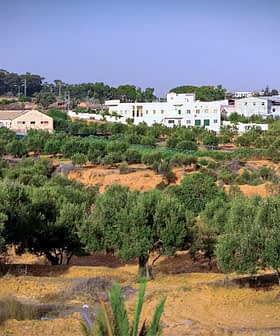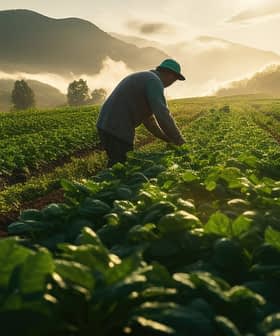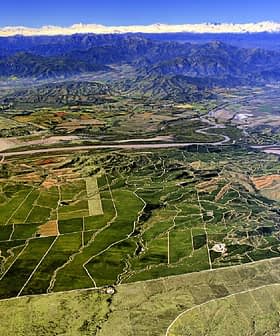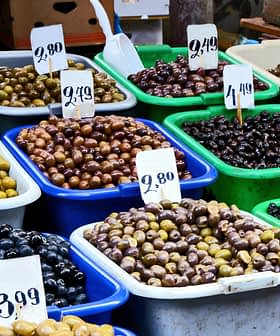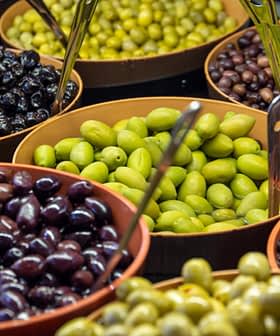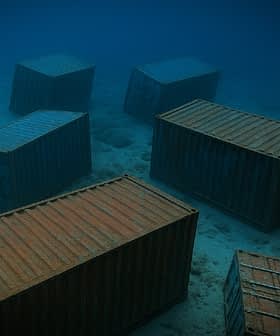Europe and South American Countries Sign Controversial Free Trade Agreement
The Mercosur-European Union free trade deal still needs to be approved by individual countries and Europe and its parliament before coming into force.
Delegates from the European Commission and four Mercosur countries signed a landmark trade agreement in Montevideo, Uruguay, establishing the largest free trade area in the world. The agreement encompasses all significant economic sectors, including agriculture, with the goal of creating new opportunities and challenging China’s position as Mercosur’s primary trading partner.
The protocol for a landmark trade agreement was signed in Montevideo, Uruguay, by delegates from the European Commission and four Mercosur countries: Brazil, Argentina, Uruguay and Paraguay.
The new agreement establishes the largest free trade area in the world, uniting 720 million consumers.
The agreement will also encompass all significant economic sectors, including agriculture.
Negotiators from both sides of the Atlantic began working on the agreement in 1999.
According to the European Commission, removing tariffs will create a range of new opportunities.
Every year, E.U. countries export more than €80 billion of goods and services to Mercosur. European countries also account for more than €384 billion in investments within Mercosur economies.
See Also:Olive Oil Trade NewsIn 2023, Mercosur exported €53.7 billion worth of mineral products, foodstuffs, beverages, tobacco and vegetable products to the E.U.
These economic ties position Mercosur as the tenth-largest trading partner of the European Union.
Brussels described the agreement as strategic, aiming to challenge China’s position as Mercosur’s primary trading partner.
Olive oil is also included in the various economic sectors the agreement covers.
E.U. olive oil exports to Mercosur currently face a 10 percent tariff, while Argentina applies a tariff of 31.5 percent.
The deal eliminates these tariffs, potentially enhancing the competitiveness of E.U. olive oil in Mercosur markets.
This has led to concern from producers across the Mercosur, many of whom worry that cheaper European olive oils will eat away at the market share of domestic producers.
“If an agreement were to be reached between the European Community and Mercosur, it would be a challenge and something that would not be very favorable for our category,” said Miguel Zuccardi, head of olive oil production at Mendoza, Argentina-based Familia Zuccardi.
On the other side of the Atlantic, Rafael Pico, deputy director of Asoliva, the Spanish national association representing olive oil producers and exporters, warned about the timeline for removing these tariffs.
“The Mercosur agreement for olive oil is not very advantageous for us,” he told Olive Oil Times. “The E.U. can import olive oils from Mercosur countries duty-free from day one. However, exporting from the E.U. to these countries is subject to a tariff that will be phased out over 15 years.”
In 2023, E.U. olive oil exports to Mercosur surpassed €493 million. According to the European Commission, removing tariffs could make E.U.-made products more appealing to Mercosur consumers.
Today, Brazil is one of the world’s largest olive oil importers, averaging approximately 90,000 metric tons annually over the past three seasons, according to International Olive Council (IOC) data.
Some large European olive oil producers voiced concern for the potential competitiveness of Argentinian olive oil exports.
Argentinian olive oil exports have averaged around 27,000 tons annually over the past three years.
The agreement includes provisions to protect geographical indications (GIs), ensuring that E.U.-certified quality olive oils are recognized and safeguarded against imitations in Mercosur countries.
From a broader agricultural perspective, European farmers are approaching the agreement with significant apprehension.
The new agreement extends to several critical sectors, including beef, poultry, sugar, rice, wine, spirits, dairy products, fruits and vegetables.
In some areas, the protocol introduces export volume limits to safeguard E.U. agriculture. The aim is to balance the anticipated imports from Mercosur with the needs of European farmers and food producers.
Major agricultural organizations in several European countries argue that limiting export quotas to the E.U. in areas such as beef or sugar will still fall short of protecting these sectors from the impact of large-scale imports of cheaper food from Mercosur.
Additionally, the rules governing the use of fertilizers, pesticides and additives differ significantly between the two blocs.
This creates disparities affecting production costs, productivity, food safety and labeling practices.
The differences in environmental approaches and sustainability practices have complicated negotiations for years.
French President Emmanuel Macron criticized the proposed agreement, stating it was signed by “countries that do not respect the Paris Agreement on climate change.”
If an agreement were to be reached between the European Community and Mercosur, it would be a challenge and something that would not be very favorable for our category.
Copa-Cogeca, representing millions of farmers and agri-food cooperatives across Europe, announced a new mobilization against the agreement.
While several protests have already occurred in Brussels, Madrid, and other European cities, the two organizations called on all farmers to raise their voices on Monday, December 16th.
“The evidence is overwhelming: Mercosur countries do not meet the production standards required of E.U. agriculture, whether in terms of plant protection products, animal welfare or sustainability practices,” Copa-Cogeca said.
“Mercosur nations also operate under lower labor and safety standards, enabling them to produce at lower costs, which makes fair competition impossible for E.U. producers,” the organizations remarked.
“This agreement will exacerbate the economic strain on many farms already grappling with high input prices and challenging climatic conditions,” warned Massimiliano Giansanti, president of Copa.
The Copa-Cogeca appeal will likely draw increasing attention from various sectors of the farming community.
The national Italian farming association Coldiretti labeled the agreement as “unacceptable.”
“The decision was made to severely penalize the agricultural sector with inconsistent regulations and unfair competition, fueling a race to the bottom in production costs, with non-reciprocal rules that disadvantage Italian and European agricultural businesses,” Coldiretti said.
European Commission President Ursula von der Leyen responded to these criticisms.
“We have listened to the concerns of our farmers, and we acted on them. Our European health and food standards remain untouchable,” von der Leyen said. “Mercosur exporters will have to comply strictly with these standards to access the E.U. market.”
“This is the reality of an agreement that will save E.U. companies €4 billion worth of export duties per year,” she added.
Von der Leyen urged that the deal not be seen solely “as an economic opportunity” but as “a political necessity,” especially after the election of former President Donald J. Trump in the United States, who has threatened to impose tariffs on E.U. imports.
However, institutions in several European countries have already expressed their opposition to the deal.
Their stance is critical: for the agreement to come into force, it must first be approved by the Council of Ministers of the European Union, composed of ministers from all 27 member states.
If approved, the agreement will move to the E.U. Parliament, where many representatives have already expressed concerns or outright opposition.
A negative vote in the Council or the Parliament would prevent the agreement’s ratification.
France, Europe’s largest agricultural exporter, has been leading opposition to the agreement for years and has now reaffirmed its position.
Poland and the Netherlands appear to share this stance, while Belgium, Ireland and Austria will likely oppose the agreement.
Italy’s position is still under discussion. As an agricultural powerhouse and major E.U. economy, its opposition could play a decisive role in halting the ratification process.
Notably, Germany, Portugal, Sweden and Estonia have openly expressed support for the agreement.
Spain, a major olive oil producer, is also backing the agreement, though prominent farming organization, including the Young Farmers Association (Asaja), have announced their opposition and mobilization against it.
German Chancellor Olaf Scholz described the agreement as pivotal for enhancing the E.U.’s economic resilience and strengthening the bloc’s geopolitical alliances. His support for the deal reverses the position of his predecessor, who was skeptical that Brazil would comply with rules around deforestation.
Brazilian Vice President Geraldo Alckmin praised the historic protocol. “it is the largest agreement between blocks in the entire world,” he said.
If the deal is approved, Alckmin noted, it could increase Brazilian exports to the European Union by 6.7 percent annually.
According to the Brazilian Trade and Investment Promotion Agency (ApexBrasil), Brazilian exports to the E.U. could rise from €103.5 billion to more than €110 billion.
“The agreement is good for our countries here in Mercosur, it is good for the European Union, but it is also good for the world, for global geopolitics,” Alckmin said.
“At a time of fragmentation, political tension throughout the world, two large blocks are opening up markets, signing a treaty, a great partnership,” he concluded.
Share this article


